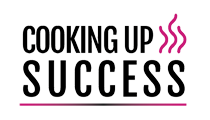Navigating Cindy’s Dynamic Career Landscape: The Art of the Pivot. In these challenging times, the ability to pivot is paramount transforming one’s expertise and transferable skills to seamlessly transition from one career or industry to another.
A career pivot, as defined by fastcompany.com is a planned, purposeful change in career direction. It can be a move to a related field, or to something completely new. Whatever its direction, a pivot is a meaningful change that requires thought and careful planning.
So, what exactly is a career pivot?
According to www.themuse.com, a career change is more like material handling, you leave one path and move to a completely different, divergent one. This new path often requires new demonstrable skills and in many cases starting over. For example, moving from being a manufacturing supervisor to software development engineer.
A friend pointed out that what sets my journey apart is my ability to adapt to any situation. I received early career training that honed my ability to navigate through shifting market, political or social landscapes. According to her, I’ve become quite adept at mastering the art of pivoting.
So, I thought I would share some tips on how to pivot your career and offer practical advice that will make your journey easier.
Here are 5 steps to help you pivot your career.
Start with Why: Clearly understand why you want to change direction or career.
Research and Focus: Conduct thorough research to pinpoint your desired focus.
Create a Plan: Develop an action plan, documenting achievements and timelines.
Implement and Track: Execute your plan while keeping track of progress.
Shift Your Brand and Network: Adapt your personal brand and actively engage in networking.
So how did I manage to put those steps in to action in my journey?
I had planned to become a Nutritionist, but having started the course I found that Science was not my thing, so I took a year off and worked in retail as a manager, which both stimulated my love of people and helped me developed tools to h understand what I wanted to do next.
To realise our goals, and enjoy getting there, it is essential we understand our purpose. For me, my purpose hasn’t changed even though my job title has —-
It is to help people and companies be the best they can be.
After my year out, I went back to university and achieved a BA in Criminology/Economics. I decided to work in crime prevention and my role was to counsel victims of violent crimes through the court process, which although was hard, it was also very rewarding.
I have the greatest admiration for our amazing social workers, criminal lawyers and Crown prosecutors, and everyone who works in that field police. It is a really tough gig and taught me invaluable skills such as compassion, not to judge, good listening skills and how to think on my feet. Through this role, combined with my experience in retail. I gained valuable business and people skills which laid the foundation for me to pivot to my next role in Academic Sales.
In this role I covered a lot of Canada. My clients were professors, retailers and software lab technicians. Although I was terrified half the time, the training was excellent – using role play, being videoed and criticised was hard but I got to learn something new every 5 minutes. Being on the road, teaches you to adapt, network and perfect your curiosity. Although I had no life and set few boundaries, the role honed my ability to think strategically, ask questions, identify needs, listen actively, close the sale and continue to manage the account. I soon learnt how to effectively build lasting relationships.
All these skills I acquired allowed me to pivot successfully. During the course of a working day, I often met with 15 different people teaching 15 different subjects. My brain learned to pivot so I could skip from one topic to another and talk to people on their level. I was great at a conversational dinner party because I knew a little bit about a lot of things and felt comfortable conversing about most subjects.
I wanted a change and made the decision to move to Vancouver, and within 6 months I moved there. Eight years later I was asked to move to the UK to launch their product line across Europe. Pivoting from my existing role in Sales to accepting a role in the UK as Marketing Manager was a huge jump out of my comfort zone into the unknown and very challenging!
Learning from marketing masters
Learning from marketing masters like Jerome McCarthy, I read, took courses, talked to as many experts as I could, networked and learnt as much as I could. This complemented my toolkit and when the company was sold, allowed me to become a Marketing Director with a different publishing company. Throughout the journey I tracked all my accomplishments, documented them and was able to show how they had impacted positively on the business. An essential lesson when pivoting careers.
looking to pivot into a new role?
I then decided to change direction and start my freelance journey. Then I got bored and decided it was time to change tack. I resigned and started my freelance journey. The skills I had gained including Sales, BD, Marketing, Strategy and People Management enabled me to once again pivot. I established a sales and marketing function, working in outplacement and recruitment and business development strategy.
After 3 years, technology beckoned, and my pivot continued. I worked with prestigious brands for 15 years before facing my most challenging transition—working for myself.
I am now on a mission to help others in pursue their passions and offer my expertise to those looking to pivot into a new role or industry.
That journey continues. I am on a mission to help others do what they love so if you need any help on how to pivot either into a new role or a new industry don’t hesitate to get in touch.

